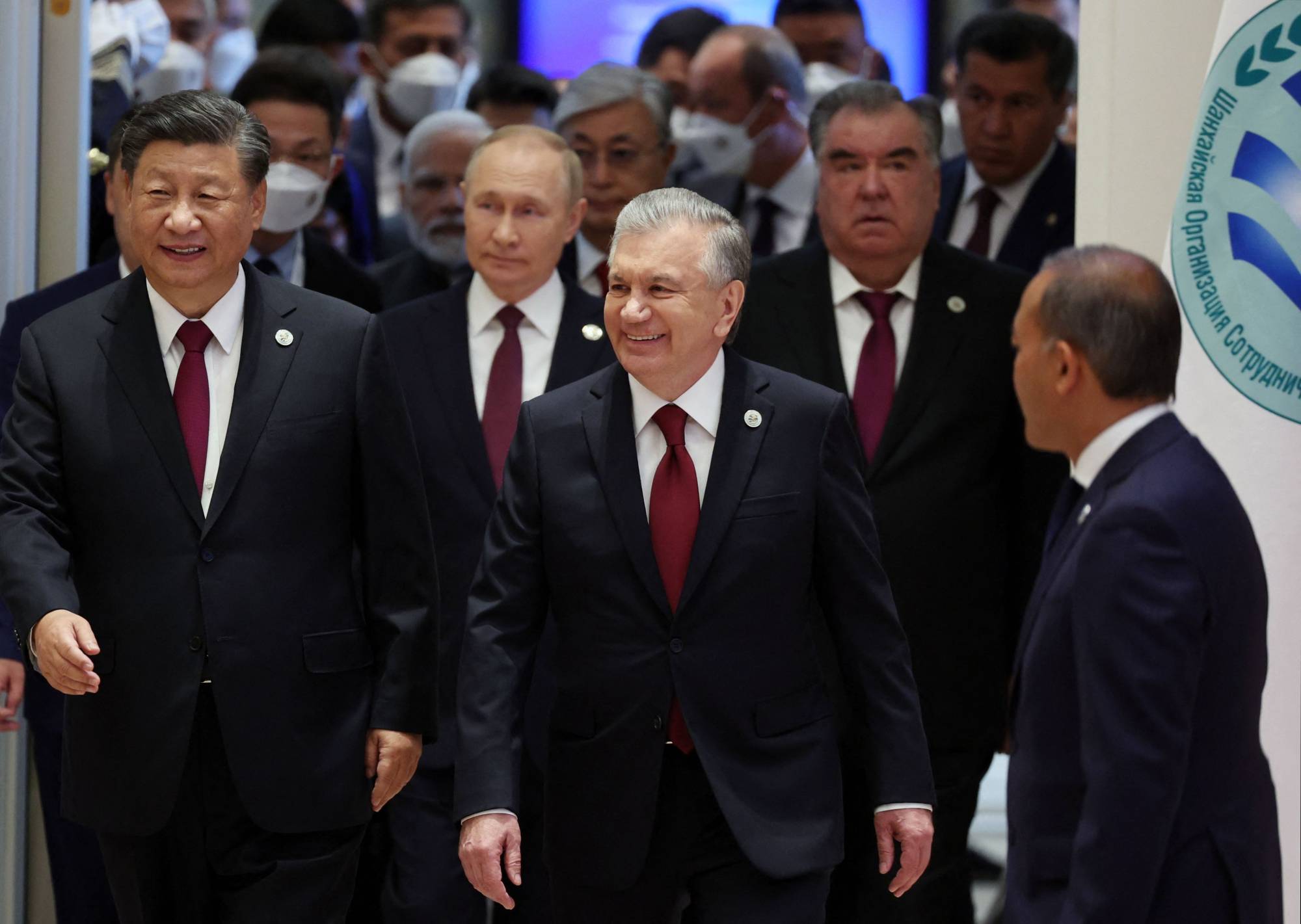International attention was focused last weekend on Samarkand, Uzbekistan, site of the 22nd Leaders Summit of the Shanghai Cooperation Organization.
Most coverage involved speculation about individuals attending: Chinese President Xi Jinping, making his first trip abroad since the beginning of the COVID-19 pandemic; Russian President Vladimir Putin, defending his invasion of Ukraine; Prime Minister Narendra Modi, navigating the competing demands of India’s membership in the SCO with participation in the Quadrilateral Security Dialogue.
This understandable fascination with personalities obscures a more important phenomenon, however: the rise of the SCO and its meaning and significance in an evolving world order. Individuals matter but forces behind their decisions and the institutional mechanisms that they animate are likely to be more critical to the future of global politics.



